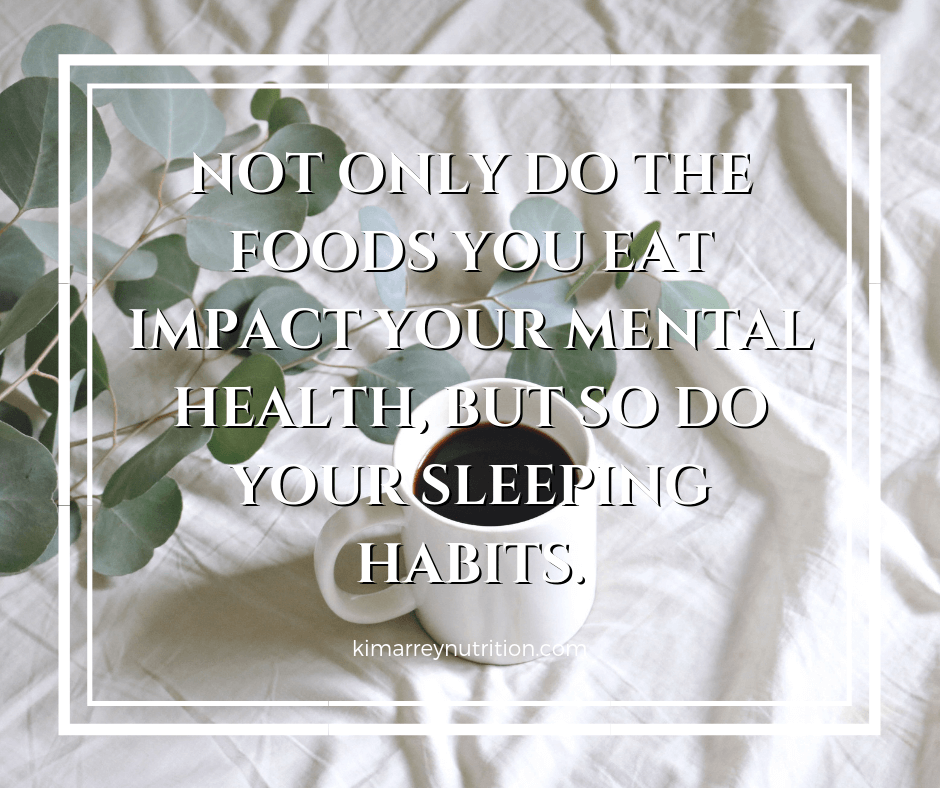Let’s be honest: many of us are so busy keeping up with the demands and responsibilities of our modern lifestyle that we rarely take a step back to think about the importance of rest and sleep.
We all know that our body regenerates itself while we sleep, but we still find ourselves getting wrapped up in our ever-growing to-do list and regularly end up sacrificing precious hours of rest to keep up. Does that sound familiar?
Not only does this kind of habit actually reduce our productivity in the long run, but it also takes a toll on our wellbeing.
Let’s fix that!

Here are three things you need to know about the importance of rest and sleep when it comes to your body and your health!
SLEEP DEPRIVATION IS LINKED TO WEIGHT FLUCTUATIONS
When my clients come to me for guidance on weight management, they are always surprised that one of the first questions I ask them is how many hours of sleep they get on an average night. Most people are under the impression that the only reason a person’s weight fluctuates is in relation to how much they move vs. how much they eat, but it is not that simple.
The balance between energy in and energy out plays an important role in helping us maintain our current weight and in losing weight. In fact, when we look at the lifestyle habits that are linked to weight gain and to obesity, lack of sleep is actually at the top of the list!

There are a number of studies in both adults and children that tell us that the more hours a person spends awake will likely lead them to eat more. Other studies in children have shown that children who don’t sleep enough are more likely to eat in response to external cues, to be emotional eaters and to ignore their internal cues to eating, which are all behaviours that are linked to weight gain.
Don’t be fooled, though! Simply willing yourself to limit the amount of food you eat during waking hours is not always enough to offset the impact sleep deprivation can have on your weight management goals. Willpower alone can only do so much to get results.
In fact, sleep deprivation is related to an increase in the production of certain hormones that cause your hunger level to skyrocket. That means that not only your sleeping habits drive you to eat more frequently and in larger quantities, but so is your biology!
Thankfully, you can set yourself up for success by adjusting your sleeping habits. When it comes to how much sleep your body needs, the magic number seems to be between 6 to 9 hours of restful sleep a night.
Keep in mind that oversleeping isn’t the solution to the effects of sleep deprivation on your body, as more or less sleep than the recommended amount of sleep has been associated with weight gain.
YOUR SLEEPING HABITS IMPACT YOUR MENTAL HEALTH
Not only do the foods you eat impact your mental health, but so do your sleeping habits. Studies show that sleep deprivation can actually amplify the symptoms of certain mental health disorders, such as depression, bipolar disorder and anxiety to name a few. Consistent lack of sleep has also been shown to increase the likelihood of an individual to develop a mental illness in the future.

Thankfully, there are a few lifestyle habits you can implement in your daily routine that can help you wind down at the end of the day and enjoy a more restful sleep.
If you have trouble falling asleep because your thoughts are racing in your head, you could try meditating and deep breathing exercises in the evening to calm them down. Writing them down before going to sleep can also help give you some peace of mind if you tend to keep yourself awake by being worried about forgetting something important.
Exercising regularly is also a great way to get a better rest at night. Just make sure to exercise at least 3 hours before going to bed to avoid feeling overly alert and accidentally keep yourself awake.
WHAT (AND HOW!) YOU EAT CAN HELP YOU SLEEP BETTER
Many of my clients tell me that they can’t fall asleep if they go to bed early, which often leads them to eat larger amounts of food in the evening. Did you ever go to bed after eating a huge dinner or snack? How did you sleep?
I would bet not very well. This is because eating a large meal or snack before bedtime is associated with poor sleep quality, just like going to bed hungry is. So if eating before going to bed and the opposite both hinder how well we sleep, what is the solution?
It is important to spread out your meals evenly during the day and to keep them about the same size. Eating your last meal about 2 hours before going to bed can also help you sleep better.
There are a number of studies about weight management and blood sugar levels that suggest that it is best to eat slightly larger meals for breakfast and lunch, then eat smaller amounts for dinner which can also be followed by a small snack before bed.

Just make sure that your evening snack does not include any chocolate, as the amount of caffeine in chocolate is likely to keep you awake and restless for part of the night. Chocolate may seem harmless, but a slice of iced chocolate cake contains about 36 mg of caffeine, which is equivalent to the amount found in a 355 ml can of cola!
Drinking a can of cola before going to sleep doesn’t exactly scream “good night”, does it? Just like we can use nutrition to increase our energy levels during the day, we can also choose to eat in a way that will improve the quality of our night’s sleep.
You can even try ending your day with a nice cup of herbal tea to help you relax! While regular tea contains caffeine, some herbal teas like chamomile are believed to help promote sleep. Be careful not to confuse herbal tea with decaffeinated tea though, as the latter still contains stimulants that can keep you wide awake.

